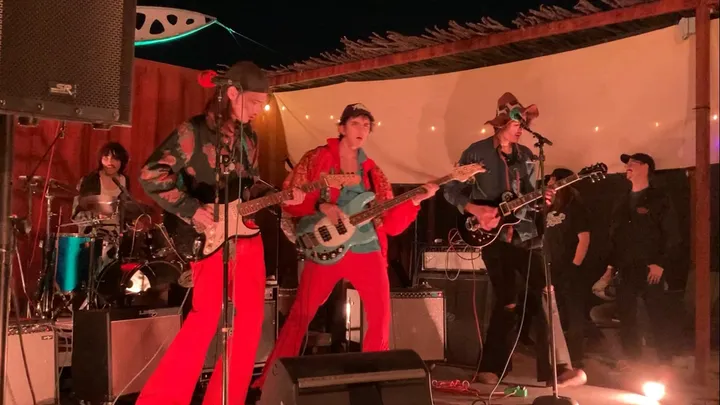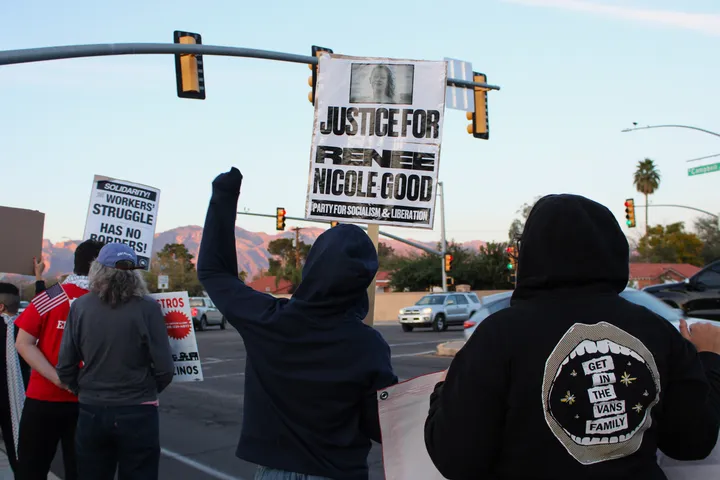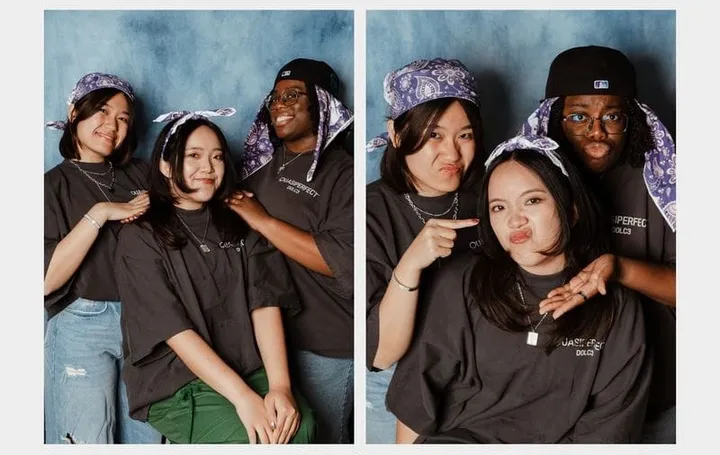Bail, voting rights reforms take center stage at Tucson panel
Advocates are pushing for cash bail reform and automatic restoration of voting rights for formerly incarcerated people, citing the’ disproportionate impact on low-income residents and people of color.
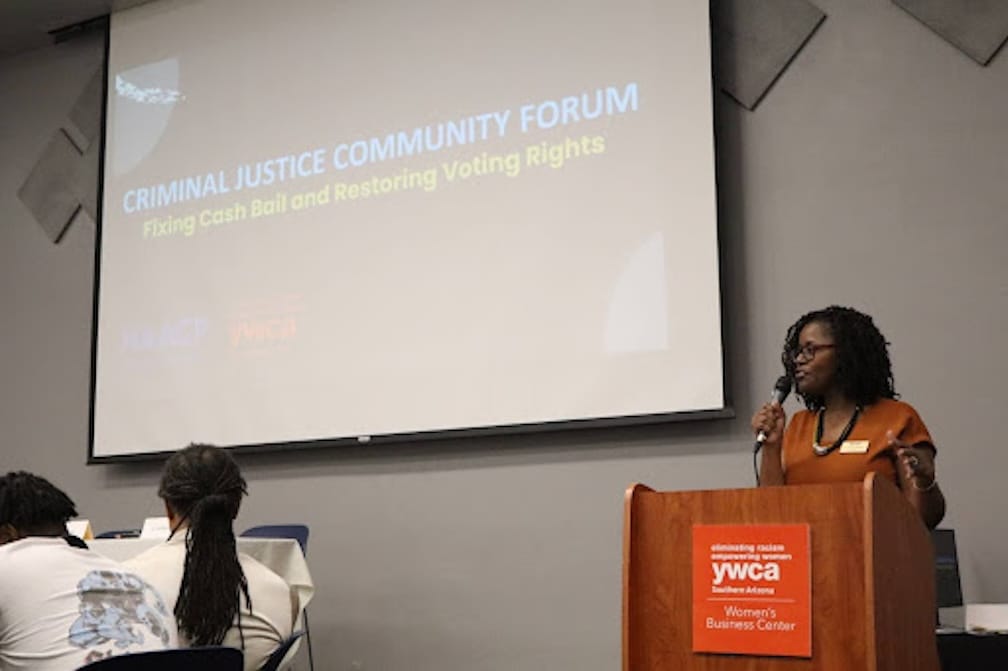
Calls for cash bail reform and voting rights restoration are gaining momentum in Tucson as advocates highlight how current policies trap people in poverty, overpopulate jails, and strip formerly incarcerated residents of their civic voice.
On Saturday, the NAACP Tucson Branch and YWCA of Southern Arizona hosted a community forum to highlight criminal justice issues.
The NAACP used the event to promote proposed changes to Arizona law that would automatically restore voting rights to convicted felons who have completed their sentences or probation, including retroactive restoration.
The organization also called for eliminating bail for misdemeanor charges and allowing pretrial detention only when there is strong evidence that an individual poses a serious threat to public safety, rather than letting people buy their way out of jail.
NAACP member Sandy Davenport said the money saved by these changes could be used to finance community services like job training and substance abuse treatment, which would help reduce recidivism.
In 2024, 81% of people in the Pima County Jail were awaiting trial, with the average pretrial stay costing the county $3,600.
Black, Hispanic, and Native American populations are all overrepresented in the jail, with presenters saying the current cash bail system criminalizes poverty and increases the jail population without improving public safety.
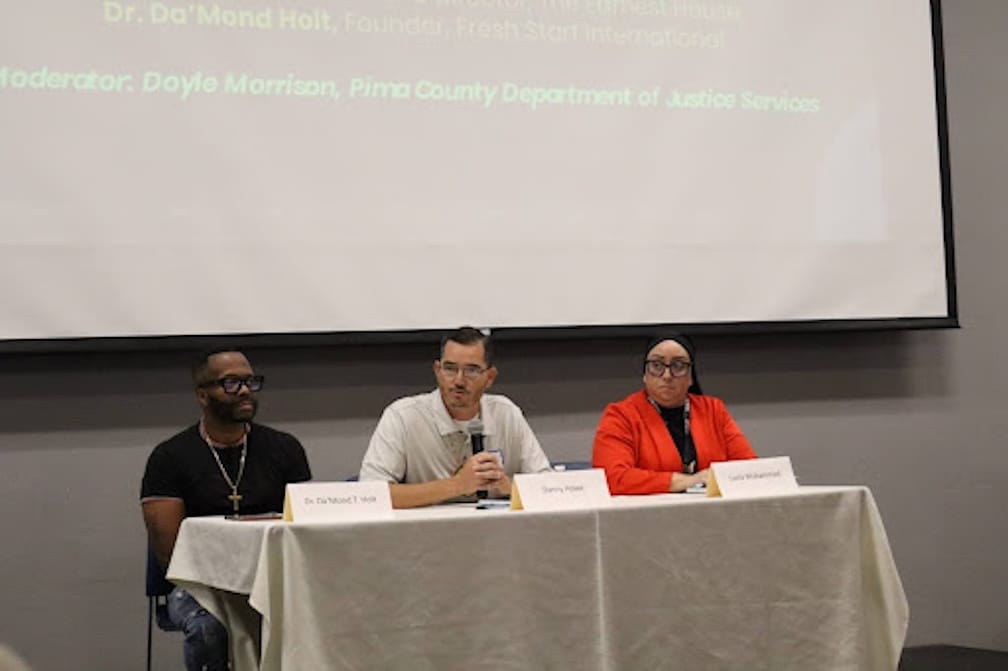
Da’Mond Holt, founder and CEO of Fresh Start International, spoke about his group’s work, including the Fresh Start Expo on Oct. 18, which connects individuals with judges and legal professionals to help address legal concerns. Services include civil rights restoration, fine reduction, and record expungement, with some taking effect the same day.
“This is a billion-dollar industry,” Holt said of the criminal justice system.
In Arizona, 4.2% of potential voters are prohibited from voting due to a criminal conviction. NAACP Tucson Branch President Cheree Meeks said restoring voting rights to these disenfranchised voters would increase commitment to pro-social behavior, give them self-respect with the ability to voice change, and reduce recidivism rates.
Andy Silverman, a University of Arizona College of Law professor who works in its Civil Rights Restoration Clinic, said that in most states, including Arizona, the process for civil rights restoration can be confusing.
An application filed with the county attorney’s office can take up to a month to process, and it might take two or three months for a judge to either approve a hearing or make a decision. There’s also no guarantee that the application will be granted.
Tom Cortese, Tucson director for Fresh Start International, experienced these struggles firsthand.
Cortese was incarcerated for 27 years in the Arizona state prison system before being released in 2016. He voted in the 2024 election for the first time since 1980, telling attendees about the difficulty he faced when trying to restore his voting rights.
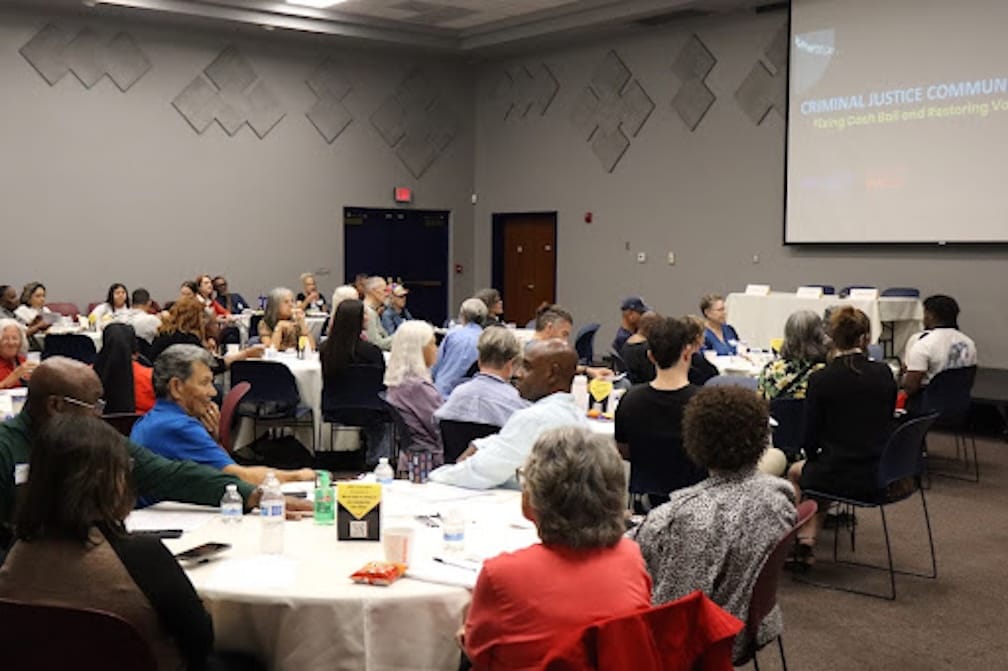
He said he hopes that formerly incarcerated individuals will be able to use their voting rights to vote in ways that will improve the system that put them in jail in the first place.
“I don’t think a great many people realize what it means to lose your rights when you’ve always had them. I don’t know if you actually realize what it means when you walk out of that place and you’ve got that sticker on and you see me and I don’t,” Cortese said. “There’s shame, there’s embarrassment, there’s all the trauma of all the years. And this system asks us to go back into the places that brought us the trauma to begin with. And you’re asking me to go through a metal detector into this room with a bunch of officers. When I go through something like that, I’m looking for the exit.”
Lauren Beall, a staff attorney with ACLU of Arizona, spoke about her experience as a Pima County public defender.
“When we as a society decide to incarcerate someone, we expose them to the four main predictors of future violence: shame, isolation, exposure to violence, and a diminished ability to meet one's economic needs,” Beall said.
She spoke about her ongoing class action lawsuit on behalf of all the people incarcerated in Arizona, arguing that their Eighth Amendment rights against cruel and unusual punishment are being violated due to a lack of “constitutionally adequate” healthcare.
Since 2017, 57 people have died while in custody of the Pima County Jail. One of these people was Beall’s former client, who died two days after being sentenced.
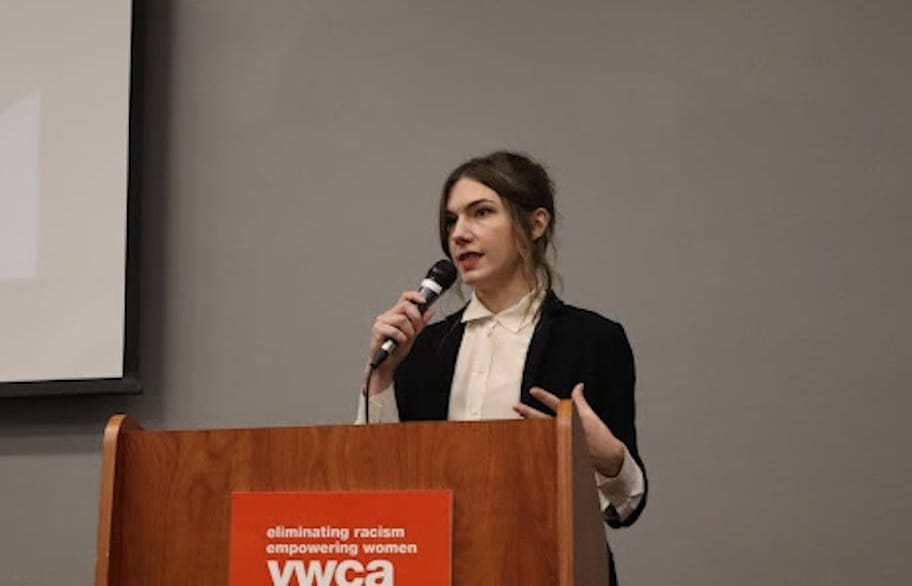
Beall called on the courts to practice neutral-risk assessment for both sentencing and pretrial release, and to address the neglect and abuse faced by those in the jail.
“In today’s society, people want to make a difference and do things, but they don’t know what to do,” said Doyle Morrison, who works as a navigator with the Pima County Transition Center, a program that connects people transitioning out of jail with services to ease their return to society. “Coming to an event like this, you get the information, which means you get an avenue to be able to take action and make a difference. We have to have more action, more education, and more events like this to give the public more information.”
Meeks said she hopes that talking about these topics will motivate and energize community members to reach out to elected officials, have tough conversations, and do research on how these issues affect people in Arizona.
She called on the state legislature to pass the cash bail reform legislation that the NAACP plans to propose in 2026.
“We need to talk to each other, whatever your political party, we need to exchange ideas and respect each other, and we can have conversations about things we probably have commonality with, but we don’t know it,” said attendee Emily Ricketts. “I think it’s important to hear stories of people who aren’t necessarily celebrities, who speak from their hearts, tell their life stories. That’s why I think we need people to talk to each other.”
Ricketts, a long-time supporter of these causes, said she was impressed to learn about Fresh Start International’s work.
“It was cool to see a lot of community leaders and the important work that they’re doing,” said Ethan Williams, another attendee. “Just knowing that there’s a lot of work being done in the community to help reintegrate people and push things out there that the community needs is really cool to see.”
Ian Stash is a journalism major at the University of Arizona and Tucson Spotlight intern. Contact him at istash@arizona.edu.
Tucson Spotlight is a community-based newsroom that provides paid opportunities for students and rising journalists in Southern Arizona. Please consider supporting our work with a tax-deductible donation.

